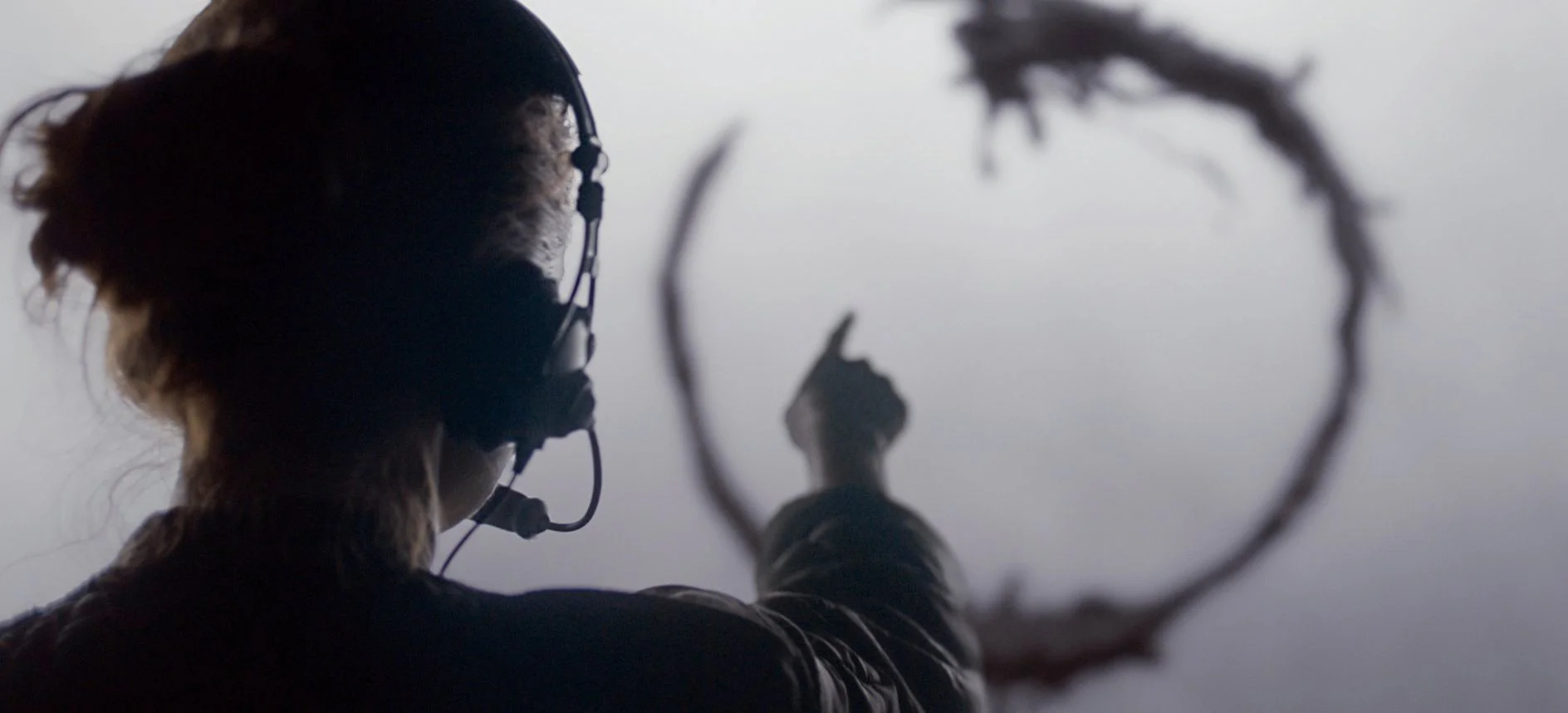Syncsmith presents - Graded 01 : Paleman
Despite the recent move to the capital and exhaustive academic schedule we managed to catch up with Manchester-born producer, jazz practitioner and sound engineer Paleman to elicit a compendium of cinematic compositions and filmic scores that have inspired and continue to challenge his practice.
10 - The Witch [Mark Korven]
A superbly macabre soundtrack, bent and broken, capturing the mystery of The Witch and her forest surroundings. Excruciatingly tense, strings, slamming percussion and radiating dissonant tones. A real masterclass in Horror writing. Korven’s pinpoint accuracy and translation of moods and themes at hand in the film is something that has inspired and captivated me to go to even greater lengths when translating moods via my composition. Korven’s soundtrack speaks volumes about the power of good composition to film.
9 - Arrival [Jóhann Jóhannsson]
Echoes of Steve Reich’s slowly unfurling “Music for 18 Musicians” with a joyful twist. Arrival is a film that explores language, and this piece really plays with repetition, language and form in a brilliant way. Jóhann’s approach to repetition and his exploration of voices (for a film about alien language) has showed how important going above and beyond a story and delving to capture hidden themes beyond a main plot or mood really allows a soundtrack to go the extra mile in accompanying a story and translating it without the image.
8 - Requiem For A Dream [Clint Mansell]
A dark film exploring addiction. Repetition of the tom tom and the cold electronics seem to embody the repetitive and grinding nature of the protagonist’s struggles with their addictions. Cold, lonely, powerful and simple, this soundtrack captivated me through its portrayal of loneliness and how it’s jerky cold nature matched the images of the film so well. A lesson in less is more, this soundtrack shows how dark simple motifs can become when paired with the right image.
7 - Thin Red Line [Hans Zimmer]
A beautiful Melanesian choral song. A gorgeous movie exploring the trauma of war in the hearts, minds and total psyche of a soldier. So human in it’s delivery, this piece captures the beauty of humanity whilst the images it accompanies capture the evil. Emotionally this piece always leaves me in tears - something about a human choir resonates deep in my soul, something I hope to capture when writing for a choir.
6 - Ascenseur Pour l’Echafaud [Miles Davis]
“Miles only gave the musicians a few rudimentary harmonic sequences he had assembled in his hotel room, and once the plot was explained, the band improvised without any precomposed theme, while edited loops of the musically relevant film sequences were projected in the background”. This soundtrack inspires me to be free when composing, sometimes just improvise, exist in the present the past and the future all at once by making it up there and then. A great lesson when bogged down flickering between ideas and concepts.
5 - Alien [Jerry Goldsmith]
Iconic score that makes me feel a billion light years from Earth. Scratching at the inside of your brain, makes you look over your own shoulder whilst oozing an organic swarm like claustrophobia through tense chords and trickling FX. I made my own intro to “Alien” after hearing this, desperate to analyse how Goldsmith captured the loneliness of space through electronic textures. The aesthetic really left an influence on me and really taught me a lesson in observing what gives a film its distinctive texture.
4 - There Will Be Blood [Jonny Greenwood]
A beautiful minimal piece that excels at dancing around multiple moods. Quite cold, but also so beautiful it warms at times. Mysterious and a great choice to include in the film alongside Jonny Greenwood’s original score. Argo Part’s compositions inspire me everyday, for me, he is as close to capturing the divine as any composer has got. Through his use of harmony and ambiguous moods he arrests my attention and sends my thoughts to distant places - a trait that every composer wishes to have in his/her art.
3 - The Legend of Hell House [Delia Derbyshire]
A long time before sequencers Delia Derbyshire was a pioneer of alien sounds and strange recording techniques. A superbly ominous and innovative soundtrack, even more astounding given the technological restraints of the era. Delia went to unheard lengths to achieve her creative vision despite great technological hurdles. Every time I have studio trouble I picture Delia cutting up 50 meters of tape and realise I’m fussing over a small issue compared to the obstacles she faced.
2 - Dark Water [Kenji Kawai]
Chilling, lonely soundtrack. Sounds fluid and wet - and eerily contemplative. A strange dull eyed piece, hinting at the supernatural and the shadow in the dark. Amazing processing, takes mean turns between beautifully and sad motifs. This soundtrack dances between the utterly chilling and joyful nostalgic themes. This film scared me no end when I was younger so it’s soundtrack will always haunt me for that reason. However, analysing it when I’m older - it is still a lesson in writing to create moods but also writing to reflect moods too.
1 - Gravity [Steven Price]
Big bold sounds, filled with space. Round and full and an exciting accompaniment to an exciting film. Since listening to this I’ve been exploring creating space and deeper higher quality sounds within a more stripped back composition. Less is more, but only when the less is very high quality. Brilliant score that captures the fear of floating into space through a sweeping infinite sounding soundtrack… what a rush!
Graded is a feature where we hold an intimate fireside session with one of our coveted artists and discover the films, the soundtracks and the cinematic scores that have inspired them and challenged their very thought process on filmic composition. The film scores selected may have proved poignant and aligned with emotional times in their development or conversely may have provided a catalyst for research into new techniques or technologies, either way the tracks and scores selected are inspirational, they are personal, they have helped forge a tailored approach to composition and are a vital component of our artists intrinsic direction in sound design.











